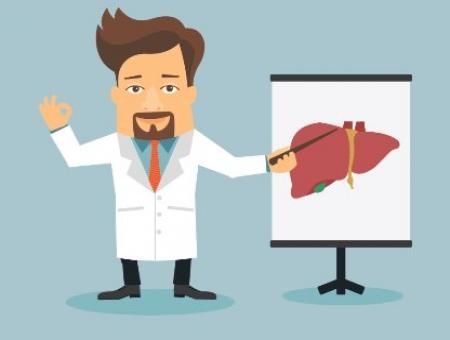
To Book an Appointment
Call Us+91 92688 80303Understanding Liver Cirrhosis: Causes, Symptoms, and Treatment Options
By Prof (Dr.) Subhash Gupta in Liver Transplant and Biliary Sciences
Jul 20 , 2021 | 2 min read
Your Clap has been added.
Thanks for your consideration
Share
Share Link has been copied to the clipboard.
Here is the link https://www.maxhealthcare.in/blogs/liver-cirrhosis-by-dr-subhash-gupta
Liver cirrhosis is a serious condition that can develop over a long period of time due to a variety of factors. The liver, being one of the most vital organs in the human body, plays an important role in maintaining overall health.
However, when the liver becomes damaged, the body can experience a range of symptoms, from fatigue to jaundice and, eventually, liver cancer. In this blog post, let's explore the causes, symptoms, and treatment options for liver cirrhosis.
Causes of Liver Cirrhosis
Many factors can contribute to the development of liver cirrhosis, but some of the most common causes are:
-
Alcohol consumption: Excessive and prolonged alcohol consumption can lead to liver damage, scarring, and, eventually, cirrhosis.
-
Fatty liver disease: It is a buildup of fat in the liver over time which can cause inflammation and scarring, leading to cirrhosis.
-
Chronic viral hepatitis B and hepatitis C: These viral infections can cause chronic inflammation in the liver, leading to cirrhosis.
-
Autoimmune hepatitis: This rare autoimmune disorder can cause the body to attack the liver, leading to cirrhosis.
-
Biliary atresia: A rare condition in which the bile ducts are blocked or absent, leading to liver damage and cirrhosis.
Symptoms of Liver Cirrhosis
The symptoms of liver cirrhosis vary depending on the severity of the condition. In the early stages, symptoms may be mild or non-existent, but as the disease progresses, the following symptoms may occur:
Fatigue
-
Hyperpigmentation
-
Elevated liver enzymes
-
Jaundice (yellow colour of eyes)
-
Loss of appetite/aversion to food
-
Feeling of weakness and lethargy
-
Abnormal bleeding occurring after minor trauma
-
Swelling in the legs
-
Ascites (accumulation of water in the abdomen)
-
Bleeding from intestine
-
Altered mental status
Treatment of Liver Cirrhosis
The treatment of liver cirrhosis depends on the underlying cause of the condition. For example, if the condition is caused by alcohol consumption, the first step in treatment is to stop drinking alcohol. If the condition is caused by viral hepatitis, antiviral medications may be prescribed. In addition, lifestyle modifications such as a healthy diet and exercise can help manage the symptoms.
In some cases, however, liver transplantation may be the only option. Liver transplantation involves removing the diseased liver and replacing it with a healthy liver from a donor. This is typically done when the liver has been severely damaged and is no longer functioning properly. While this can be a lifesaving procedure, there are risks involved, and the recovery process can be lengthy.
Liver cirrhosis is a serious medical condition; if you suspect that you may be at risk for liver disease, it is important to speak with your doctor to discuss your options and develop a plan for managing your condition.

Written and Verified by:
Related Blogs

Prof (Dr.) Subhash Gupta In Liver Transplant and Biliary Sciences
Nov 08 , 2020 | 2 min read

Dr. Nivedita Pandey In Gastroenterology, Hepatology & Endoscopy , Liver Transplant and Biliary Sciences
Nov 08 , 2020 | 2 min read

Dr. Nivedita Pandey In Gastroenterology, Hepatology & Endoscopy , Liver Transplant and Biliary Sciences
Nov 08 , 2020 | 2 min read
Blogs by Doctor

5 precautions to take after a successful liver transplant surgery
Prof (Dr.) Subhash Gupta In Liver Transplant and Biliary Sciences
Nov 08 , 2020 | 2 min read

What are the common symptoms of a liver disease?
Prof (Dr.) Subhash Gupta In Liver Transplant and Biliary Sciences
Nov 08 , 2020 | 2 min read

Five main strains of the Hepatitis virus – A, B, C, D and E
Prof (Dr.) Subhash Gupta In Liver Transplant and Biliary Sciences
Nov 28 , 2020 | 2 min read
Most read Blogs
Get a Call Back
Related Blogs

Prof (Dr.) Subhash Gupta In Liver Transplant and Biliary Sciences
Nov 08 , 2020 | 2 min read

Dr. Nivedita Pandey In Gastroenterology, Hepatology & Endoscopy , Liver Transplant and Biliary Sciences
Nov 08 , 2020 | 2 min read

Dr. Nivedita Pandey In Gastroenterology, Hepatology & Endoscopy , Liver Transplant and Biliary Sciences
Nov 08 , 2020 | 2 min read
Blogs by Doctor

5 precautions to take after a successful liver transplant surgery
Prof (Dr.) Subhash Gupta In Liver Transplant and Biliary Sciences
Nov 08 , 2020 | 2 min read

What are the common symptoms of a liver disease?
Prof (Dr.) Subhash Gupta In Liver Transplant and Biliary Sciences
Nov 08 , 2020 | 2 min read

Five main strains of the Hepatitis virus – A, B, C, D and E
Prof (Dr.) Subhash Gupta In Liver Transplant and Biliary Sciences
Nov 28 , 2020 | 2 min read
Most read Blogs
Specialist in Location
- Best Liver Transplant Surgeons in Patparganj
- Best Liver Transplant Surgeons in India
- Best Liver Transplant Surgeons in Delhi
- Best Liver Transplant Surgeons in Ghaziabad
- Best Liver Transplant Surgeons in Gurgaon
- Best Liver Transplant Surgeons in Saket
- Best Liver Transplant Surgeon in Nagpur
- Best Liver Transplant Surgeon in Lucknow
- Best Liver Transplant Surgeons in Dwarka
- Best Liver Transplant Surgeon in Pusa Road
- Best Liver Transplant Surgeon in Vile Parle, Mumbai
- Best Liver Transplant Surgeons in Sector 128, Noida
- CAR T-Cell Therapy
- Chemotherapy
- LVAD
- Robotic Heart Surgery
- Kidney Transplant
- The Da Vinci Xi Robotic System
- Lung Transplant
- Bone Marrow Transplant (BMT)
- HIPEC
- Valvular Heart Surgery
- Coronary Artery Bypass Grafting (CABG)
- Knee Replacement Surgery
- ECMO
- Bariatric Surgery
- Biopsies / FNAC And Catheter Drainages
- Cochlear Implant
- More...





